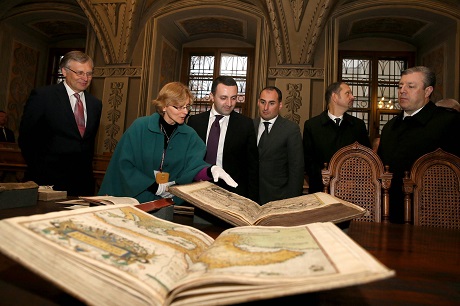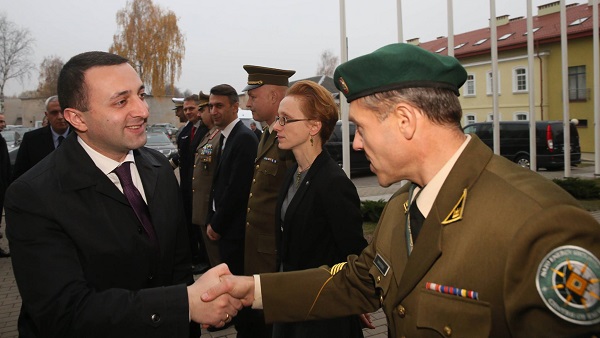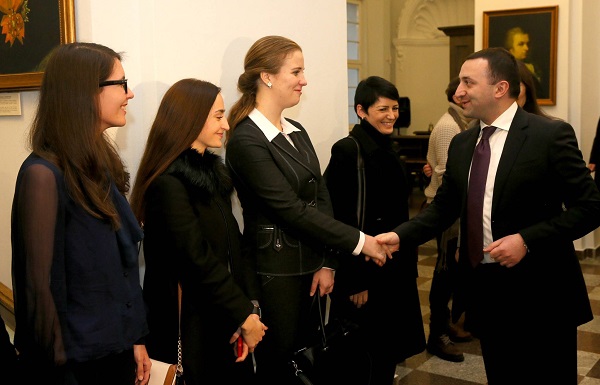“We are proud of our soldiers” says Georgia’s PM at NATO Energy Security Centre

Georgia is proud of its soldiers, who are standing by the North Atlantic Treaty Organisation’s (NATO) forces in defence of international peace and security,” Georgia’s Prime Minister Irakli Garibashvili said during his visit to the NATO Energy Security Centre of Excellence in Vilnius, Lithuania.
The Georgian top official visited the Vilnius-based facility yesterday and learned about the Centre’s activities, which included providing expertise on the development of NATO capacities in the energy security sector, analysing aspects of energy supplies and infrastructure protection and also giving advice on improving energy efficiency.
Garibashvili stressed he was proud Georgia was member of the Centre, together with six other partner states Lithuania, Latvia, Estonia, Italy , Turkey and the United Kingdom.

Georgia's Prime Minister at the Vilnius-based NATO Energy Security Centre. Photo by Prime Minister's webpage.
Georgia became a member of the NATO Energy Security Centre of Excellence on November 16, 2014.
During Garibashvili’s one-day visit, the Georgian top official also met with five Georgian Officers studying at Lithuania’s Defence Academy.
Georgia is the second largest contributor to NATO. We have servicemen we can be proud of. We are carrying out a reform of our Armed Forces through the support of the Alliance. It gives me great pleasure to meet with Georgian officers here,” Garibashvili said.
After this the Georgian official visited Vilnius State University, where he was introduced to Georgian students who were studying there and Lithuanian students who were studying the Georgian language. There were 62 Georgian students studying at the University; 33 carrying out Bachelors and Master’s degrees and the remaining were part of various exchange programs.

PM Irakli Garibashvili shakes the hand of a Lithuanian student who is studying the Georgian language. Photo by Prime Minister's webpage.
Through an initiative of Georgia’s Ambassador to Lithuania, a Georgian Language Learning Course was established at the University, where 23 Lithuanian students were studying the Georgian language. While conversing with Garibashvili the Lithuanian students stressed they loved the Georgian language and had Georgian friends.
Prior to the informal meetings Garibashvili took part in official meetings with his Lithuanian counterpart and other high-ranking state officials.
 Tweet
Tweet  Share
Share